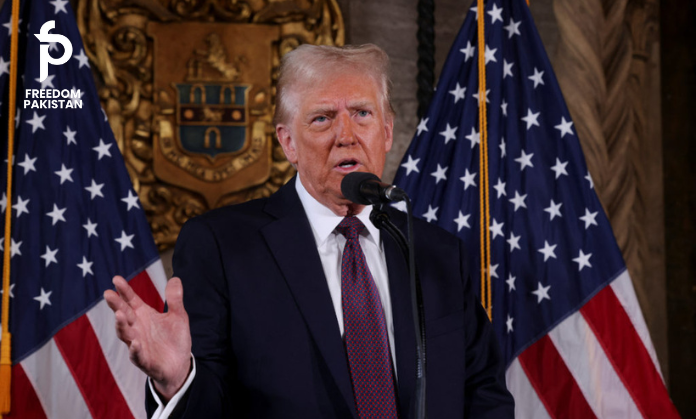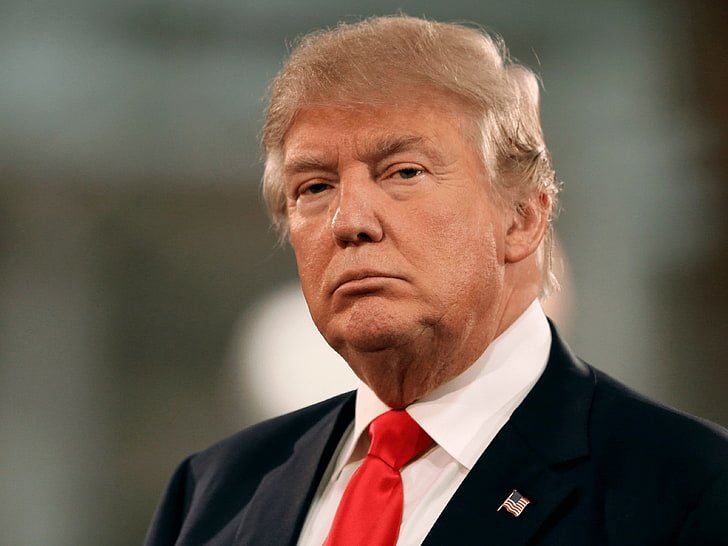Recent reports in The Wall Street Journal alleged that U.S. President Donald Trump had secretly approved military plans—specifically targeting Iran’s Fordow uranium enrichment facility—but paused to await developments in diplomacy . These claims quickly provoked both internal and international alarm, prompting an emphatic denial from the White House.
The Allegation
According to The Wall Street Journal, President Trump informed senior advisors he had signed off on potential military strikes on Iran, yet withheld a final execution until diplomatic channels were exhausted. The plan reportedly involved deploying the Massive Ordnance Penetrator (MOP)—a powerful bunker-buster weapon capable of penetrating thick mountain structures like Fordow.
Presidential Denial
On June 19,President Trump took to Truth Social, asserting that “The Wall Street Journal has No Idea what my thoughts are concerning Iran!”. Press Secretary Karoline Leavitt further clarified during a White House briefing that no order has been given: a decision will be made “within the next two weeks,” contingent on whether Iran engages in negotiations. The White House has also reaffirmed the U.S. remains in a defensive posture and is not currently partaking in any joint strike.
Military Context & Target Significance
The heart of the debate lies in whether the GBU‑57 MOP—a 30,000-pound bunker-buster—can effectively neutralize the deep-underground Fordow site.Pesident Trump reportedly seeks analysis from the Defense Department, as critics argue even the MOP may be inadequate, prompting concern that only a tactical nuclear weapon could ensure destruction . Complicating matters, Israel, though supportive of neutralizing Iran’s nuclear infrastructure, lacks such weaponry.
Regional Conflict & Israeli Actions
Meanwhile, Israel has already carried out strikes under “Operation Rising Lion” on nuclear and military installations in Iran, including Natanz and Arak. PM Netanyahu has publicly insisted Israel can handle Fordow unaided, though analysts remain cautious about their capacity without U.S. bunker busters.
Pakistan Navy Rescues Injured Indian Sailor in Arabian Sea
You Can Also Read This
Diplomatic Considerations
The delay in finalizing a U.S. strike aligns with its willingness to explore diplomatic avenues—most notably the recent talks around Iran’s nuclear program . Iran, for its part, has criticized the pressure, warning against “negotiating under duress”.
Domestic & Political Fallout
Reports of an imminent U.S. strike have fractured President Trump’s base. MAGA stalwarts like Steve Bannon and Tucker Carlson voiced deep concerns, arguing for restraint and diplomacy. Senator Ted Cruz emphasized that although no troops will deploy, a bunker-buster strike remains an option. Congress has also urged caution, with Democrats warning against impulsive military actions .
Global Strategic Implications
Amid these uncertainties, the U.S. has moved naval assets to the Middle East and advised citizens to consider exit plans. World leaders—from the UN Secretary-General to Beijing and Moscow—are urging restraint and de-escalation . Regional powers like Saudi Arabia and the UAE have also stressed their refusal to allow strikes from their territories and have warned of retaliatory consequences.
Regional & Gulf Reaction
Gulf monarchies—Saudi Arabia, UAE, Qatar, Oman, Kuwait—are now leaning toward Iran diplomatically to avoid being drawn into U.S.-led regional tensions. They’re deeply worried that U.S. strikes could provoke Iranian retaliation, jeopardize oil exports through the Persian Gulf, and unravel fragile regional détente.
European Diplomacy in Action
Iran’s Foreign Minister Abbas Araghchi is meeting with representatives from Germany, France, and the UK in Geneva—the first high‑level dialogue since the current round of Israel‑Iran hostilities began. European diplomats are urging Iran to commit to verification while pushing the U.S. toward restraint.
Russian Warning Over Nuclear Risk
Russia has issued stark cautions to President that any U.S. military involvement could bring the world “millimeters” away from a nuclear catastrophe. Foreign Ministry officials have offered to mediate—but President Trump reportedly rejected Putin’s proposal, preferring to reinforce regional posture.
Netanyahu’s Forward Strikes
Israel, under “Operation Rising Lion,” has struck Iran’s nuclear and missile infrastructure and reportedly killed hundreds. Iran has fired back with deadly missile barrages that struck civilian targets, including hospitals in Beersheba and central Israel, injuring over 240 people. The conflict is intensifying at an alarming pace.
Gulf Business Preparedness
Regional Gulf businesses are activating risk mitigation procedures, including evacuation plans and logistics adjustments. Major entities like Dubai’s DP World are preparing alternative routes. The Red Sea shipping lanes, packed with energy and trade exports, are under close surveillance.
Domestic Fallout & Trump’s Media Clash
President Trump vehemently rejected Wall Street Journal and Fox News coverage of his Iran stance, tweeting “MAGA hates Fox News.” The rift underscores MAGA base tensions—some fear escalation—even as Trump continues to deny any strikes have been authorized.
Global Shift & U.S. Naval Movements
Despite no official orders, U.S. carriers and B‑2 stealth bombers are now positioned for rapid deployment. Meanwhile, global oil markets and energy security experts watch warily, as any conflict in the Persian Gulf or Strait of Hormuz could spike prices above $100 per barrel.
-
Iran’s Nuclear Status: On June 12, the IAEA found Iran non-compliant; highly enriched uranium reserves surged, and Tehran is constructing a new enrichment site with advanced centrifuges.
-
Mossad & Israeli Hybrid Ops: June saw coordinated strikes by Mossad drones and IAF jets crippling Iran’s air defenses and missile launchers—signaling a new hybrid-war capability in action.
- Pakistan & South Asia: Pakistan remains on alert. Its strategic calculus involves careful diplomacy with Washington, Tehran, and Beijing—balancing ally commitments with national security concerns.
Conclusion & Outlook
The saga continues: a powerful weapon sits ready, political and military councils remain divided, and diplomacy still hangs in the balance. For now, the U.S. maintains its defensive posture, awaiting Iran’s next move. Within two weeks, the administration is expected to either green-light an attack, impose more sanctions, or double down on negotiations. The stakes are massive—spanning nuclear non-proliferation, Middle East stability, and the global credibility of American strategic resolve.




